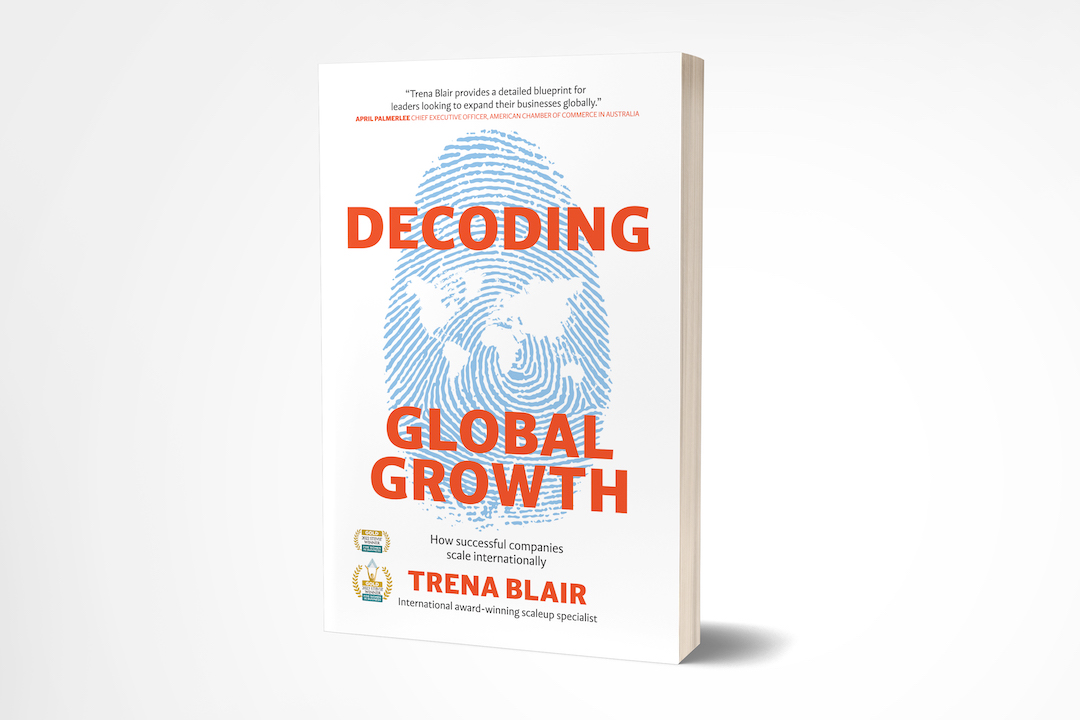Trena Blair is the founder and CEO of FD Global Connections, an advisory firm for Aussie companies looking to enter the US market.
She speaks about the importance of investing in female entrepreneurs and creating gender equality in the world of Venture Capital.
In your opinion, why are female-founded businesses receiving less Venture Capital funding in Australia?
Unfortunately, the lack of Venture Capital funding for female founders is not just a concern in Australia, but a global issue that impedes gender equality. Despite decades of efforts to promote female entrepreneurs and the acknowledgment that they generate higher financial returns than their male counterparts, women-led ventures made up around 3 percent of the global $107 billion raised by venture funds in 2023, according to Venture Capital Journal.
In 2022, Dr. Dana Kanze, Assistant Professor of Organizational Behaviour at London Business School, and her research team undertook two studies involving nearly 400 tech ventures led by male and female CEOs. They explored this issue, focusing on the funding outcomes for female entrepreneurs across different industries and regions. The research shed light on the unique challenges faced by female entrepreneurs and the impact of gender biases on funding decisions made by investors, finding that female-led ventures operating in male-dominated industries are disproportionately disadvantaged when compared to their male-led counterparts.
This disadvantage presents itself through funding, as well as lower valuations and reduced equity for female founders in the industry. Research also identified the role of cognitive biases in shaping perceptions, exacerbated by a lack of diversity among investors. However, investors show less bias against female-led ventures in female-dominated industries, suggesting the importance of financial literacy in mitigating industry fit bias.
The implications of these findings are profound. They indicate a “double bind” for female entrepreneurs, who are only perceived as fit for certain industries and thus are limited in their potential growth.

In the market changing? Why is now a good time to be a female founder?
The market is definitely evolving. Governments worldwide are recognising the important economic contribution of female entrepreneurs, and developing programs to support them. In fact, according to the BGC, if women and men participated equally as entrepreneurs, global GDP would rise by around three to six percent, boosting the global economy between $2.5 trillion and $5 trillion.
There’s also a growing recognition of the untapped potential and unique perspectives that female entrepreneurs bring to the table. Female-led incubators, accelerators and venture funds focused on supporting women founders are on the rise, and biases are being challenged every time a successful woman-led start-up emerges. Investors are witnessing the tangible results of backing women entrepreneurs, leading to a shift in attitudes and increased investment in female-led ventures.
What inspired you to start your company, FD Global Connections?
From 2007-2010 I worked in New York City as VP of Marketing for the Americas, where I was responsible for creating innovative products, leveraging brand assets and identifying target market segments. This gave me an appreciation for the opportunities available in the US market, which I sought to bring to Australian companies. This led me to start FD Global Connections to create a bridge between the Australian and American industries.
What has been the highlight of your career so far?
One major highlight of my career has to be the incredible clients we have partnered with at FD Global Connections, who have helped us to create unique programs such as the first “accelerator” connecting Australian scaleups with my New York network, and securing Australia’s first exhibition at the prestigious Smithsonian National Museum of Natural History in Washington D.C.
However, I’m most proud of my recent debut book, Decoding Global Growth: How Successful Companies Scale Internationally. In its first month of release, it became a #1 Amazon Best Seller in Australia and #1 Best New Release in the USA.

Trina’s debut book, Decoding Global Growth: How Successful Companies Scale Internationally.
How can entrepreneurs generate more investment and opportunities?
Savvy investors are increasingly aware of the potential opportunity presented by female entrepreneurs. Prioritising diversity and inclusivity within investment strategies can create new growth, and this is echoed in the global upward trend in female-founded Venture Capital firms. There’s also more female leadership within investment firms. By fostering an inclusive environment and actively seeking opportunities to support women entrepreneurs, investors and founders alike can contribute to a more equitable and prosperous future and generate new and exciting opportunities.
How can we as a society encourage more investment in female-founded businesses?
Encouraging more investment in female-founded businesses starts by addressing the systemic biases in entrepreneurship and promoting gender equality. Education and awareness campaigns are crucial to highlighting the importance of gender diversity in entrepreneurship and the economic benefits of investing in female-founded businesses.
However, there are several strategies that we as a society can implement:
- Increase the diversity of investors, particularly in venture capital firms, to reduce gender biases in funding decisions.
- Encourage mentorship programs, networking opportunities and accelerators explicitly tailored for female entrepreneurs.
- Foster corporate support by sponsoring accelerators and mentoring initiatives that are tailored to diverse entrepreneurs.
- Implement accredited training programs for investors to appreciate the economic potential of female entrepreneurs while addressing unconscious biases.
- Launch an awareness campaign to support women in finance degrees when considering venture capital as a career.
- Reform policies to support women-led venture capital funds or introduce tax incentives for investors in female-founded businesses.
- Highlight successful female entrepreneurs and their achievements to inspire future generations of women to pursue entrepreneurship and attract investment in female-founded businesses.
By implementing these strategies and fostering a supportive ecosystem for female entrepreneurs, we as a society can encourage more investment in female-founded businesses and advance gender equality in entrepreneurship.
Loving this interview with Trena Blair? To read our interview with Sharon Nouh, CEO of Prospend, click here.

